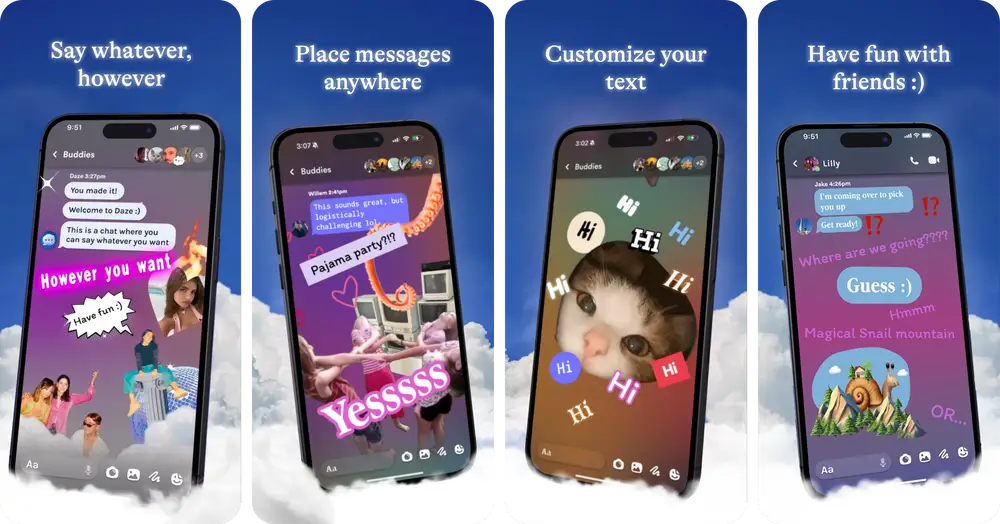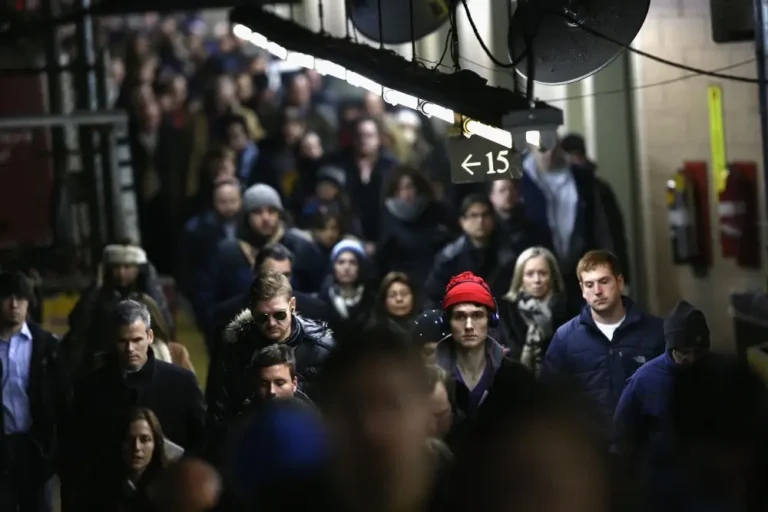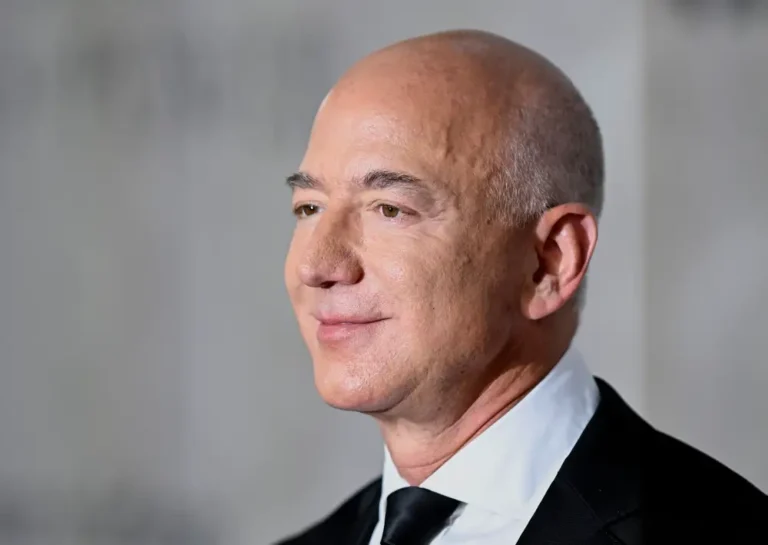Nearly 200,000 people are on the waitlist to try out a new Gen Z messaging app that launches next week

Daze is launching on November 4 and has close to 200,000 people on the waitlist to try it out.
An upcoming messaging app for Gen Z looks a lot different than your typical iPhone or WhatsApp conversation.
It’s called Daze, and CEO Willem Simons told B-17 that 187,000 people had joined the waitlist for early access ahead of the app’s launch next week.
The app gained traction after the startup posted several viral TikToks that offered a glimpse at what a conversation on Daze can look like, filled with visually stimulating text strings with floating fonts in different shapes and sizes and interactive gifs.
The videos drew millions of views.
The emphasis on imaginative visuals was deliberate. Simons told B-17 that the app is aimed at middle schoolers and high schoolers. Of the 2,000 beta testers, Simons said most fall between 13 to 22 years old. You have to be at least 13 years old to sign up.
Simons said he was partly inspired to create an interactive app by his own experience as a teen. The 27-year-old, who has cofounded other startups, including the messaging app Muze, said he grew up in a somewhat rural environment and couldn’t always be in person with friends.
“So we were hanging out largely through messengers and things like Skype,” Simons said, adding that, “messaging is not just about utility, it’s also about hanging out with people.”
In middle school and high school, Simons said people tend to have much larger groups of people they consistently communicate with. Once people get to college, they’re hanging out a lot more in person, he said.
“Texting is still obviously a huge part of college culture,” Simons said. “But I think high school is really at the core of what we’re going for.”
Simons said people are resonating with Daze’s promotional videos because of the relatable narrative portrayed in the videos. Simons said the videos show real-life scenarios of kids interacting, like a guy asking out a girl.
“It’s using the format to illustrate it in this creative way,” Simons said.
Simons said that when social media and messaging platforms started out with apps like Tumblr, it was more “freeform.” Then Facebook came along and standardized communication with templates, and the rest of the internet followed suit, he said.
There’s increasing interest in “expressivity” again, the CEO said, and TikTok and Instagram stories are allowing people to lean into it. Snapchat, which is especially popular for kids and teens right now, “captivates people because it’s super casual,” Simons said.
“I think with Daze, we’ve kind of taken that a step further where you can just send a silly photo or you can make a drawing or make little collage,” Simons said. “So it feels even more casual and playful.”
The app will be free, and Simons said the startup plans to monetize by offering users the ability to pay to unlock animated text styles or image effect filters. It’s an opportunity to integrate AI as well through various formats.
Simons pointed to a viral trend of people squishing an image of somebody and said he sees a similar type of premium feature with Daze.
“So you could picture somebody paying a small amount to basically unlock the ability to apply those sorts of effects to photos,” Simons said. “And then, it’s like you send me a selfie, and I inflate it and you float away.”
Daze is launching at a time when it’s difficult to convince people to change their texting habits and download a new app. An October 2023 report from Emarketer, a sister company to B-17, said that smartphone users aren’t downloading or using as many apps.
The startup will need to convince people to try Daze over competitors like Snapchat and as tech giants like Apple and Google add features to their own messaging products, including AI-generated visuals like the upcoming “Genmoji,” in an effort to retain their user base.
Daze isn’t necessarily trying to replace other apps though. Simons said he sees people using different messaging apps for different people in their lives, and he sees Daze being a place to connect with close friends. There isn’t a need to use expressive features to message people like your doctor, he said.
Simons envisions Daze eventually expanding into a larger social platform. For now, though, he said the startup is focused on making “something really cool” that attracts millions of users. As the company validates its market fit and gets more people on board, Simons said it will put more effort toward monetizing it.
Daze launches November 4 for iPhone and Android.






